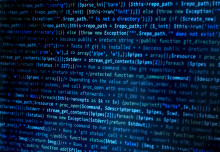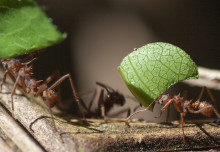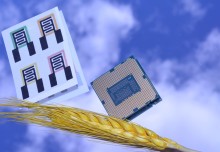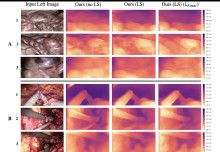

News in brief
I-X award and compost health risk: News from the College
Here’s a batch of fresh news and announcements from across Imperial.



I-X award and compost health risk: News from the College
Here’s a batch of fresh news and announcements from across Imperial.


Imperial researchers help inform the development of the National AI White Paper
The Forum organised a roundtable with Imperial researchers and the government Office for AI to discuss the government’s upcoming AI White Paper


Artificial Intelligence tool could help GPs diagnose heart failure
AI can help to improve the performance of ‘smart stethoscopes’, enabling doctors to diagnose heart failure earlier and improving patient outcomes.


I-X: Imperial searches for 13 new leaders of the digital revolution
A new Imperial College London initiative, I-X, is recruiting 13 academic staff to lead the next wave of the digital revolution.


Tech inspired by ant colonies could keep goods moving during supply chain shocks
Technology company Logidot is using a new partnership to help logistics firms weather COVID-19 staff shortages – using technology inspired by ants.


Video
Low-cost intelligent soil sensors could help farmers curb fertiliser use
Smart sensing technology to help farmers use fertiliser more effectively and reduce environmental damage has been created by Imperial bioengineers.
 1
1


Imperial startup wins global competition for its brain-computer interface tech
Cogitat has won a prize for a technology that could make it possible to control machines using the brain – and enable more life-like virtual reality.
 1
1


Randomly Connected Neural Network for Self-Supervised Monocular Depth Estimation
A Hamlyn research team that introduced a novel deep learning method has won the Outstanding Paper Award at AECAI-CARE-OR2.0 workshop in MICCAI 2021.


German science leaders commend public health innovation at White City Campus
German science leaders visited Imperial’s White City Campus to discover how researchers are working with the local community on health challenges.


Proposed illegal image detectors on devices are ‘easily fooled’
Proposed algorithms that detect illegal images on devices can be easily fooled with imperceptible changes to images, Imperial research has found.
 2
2